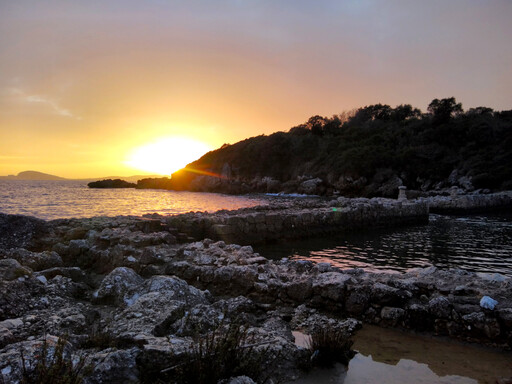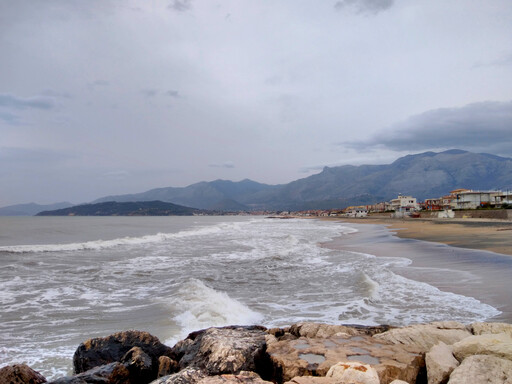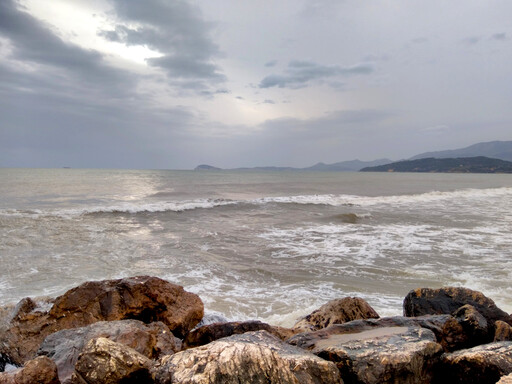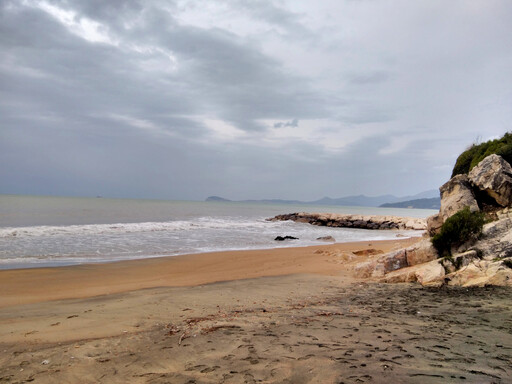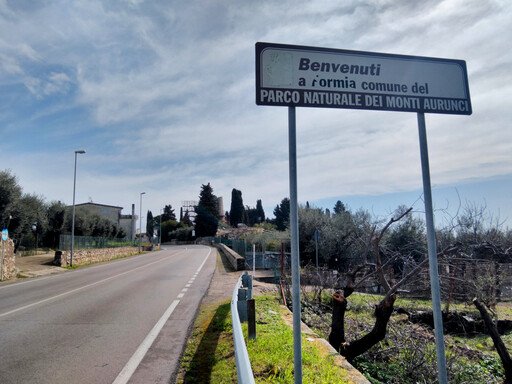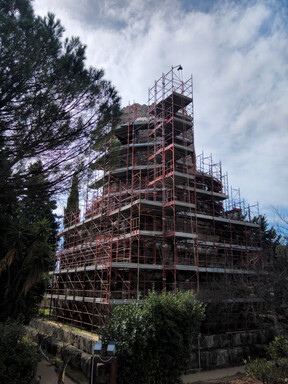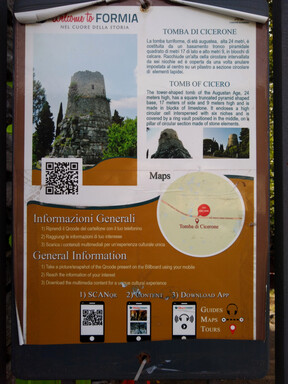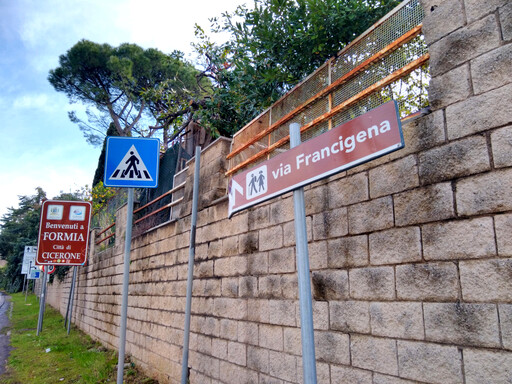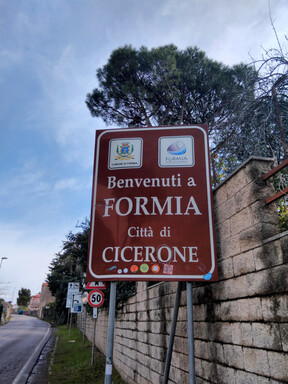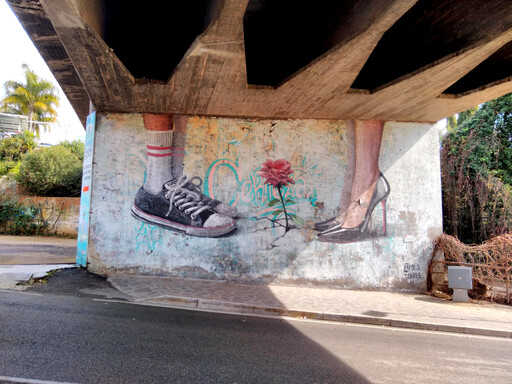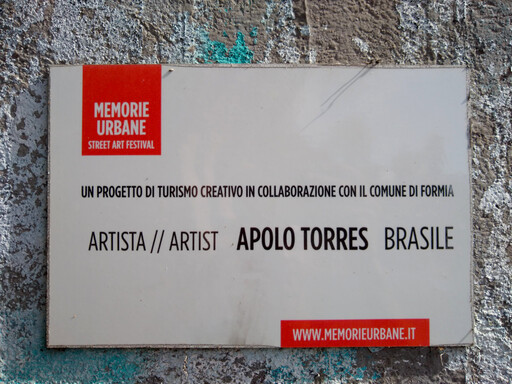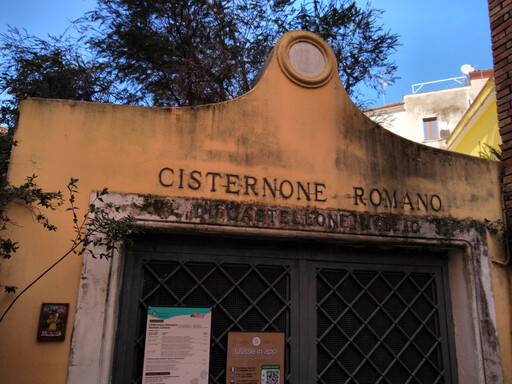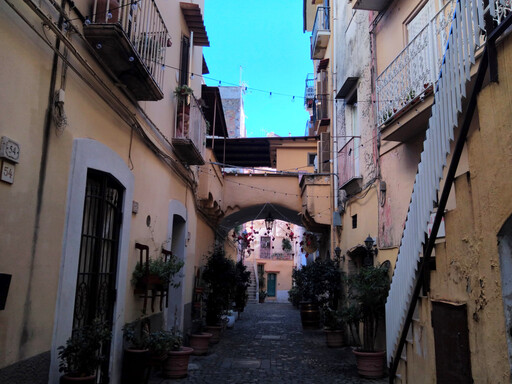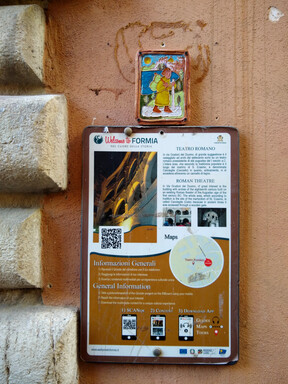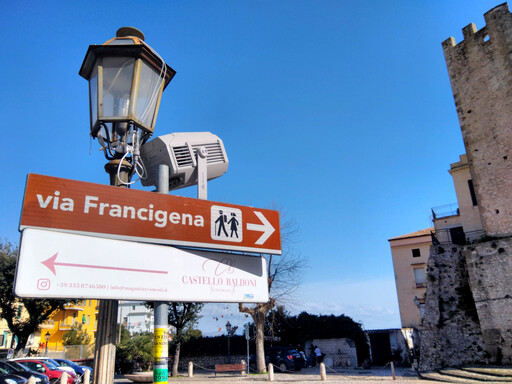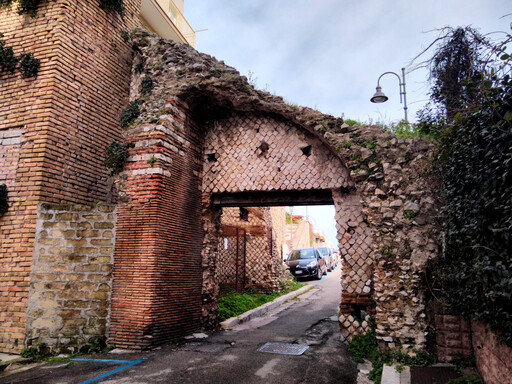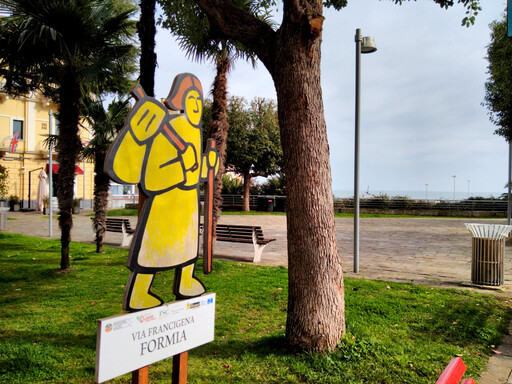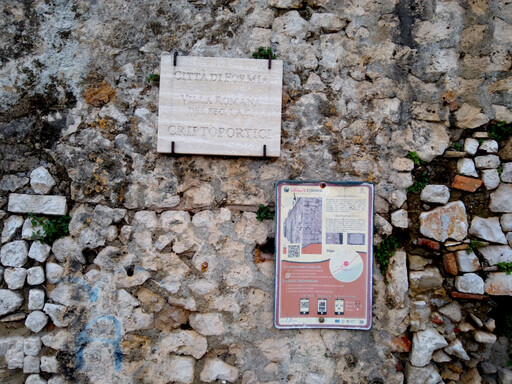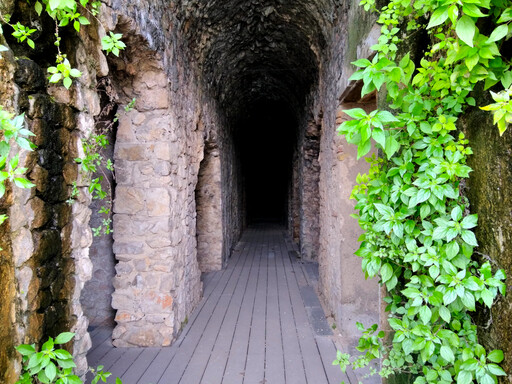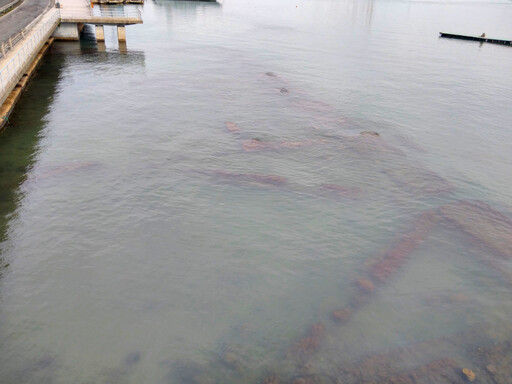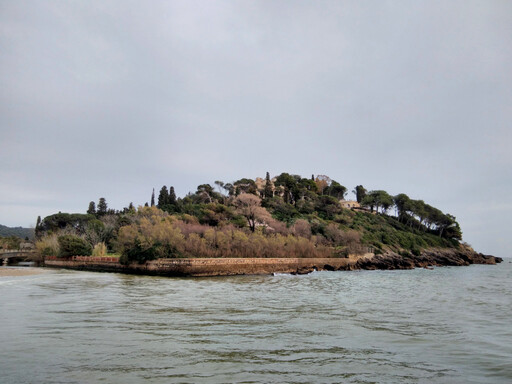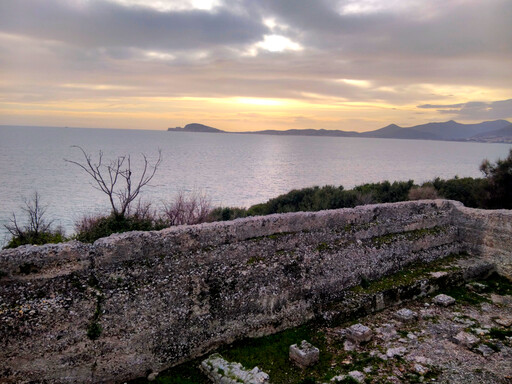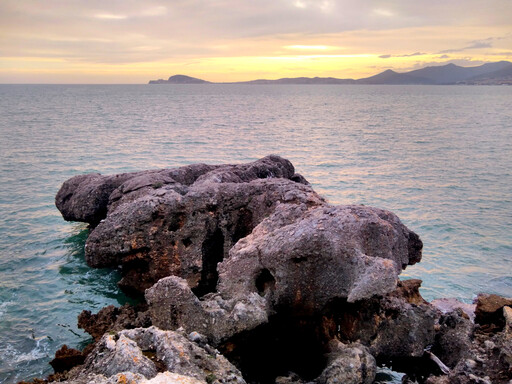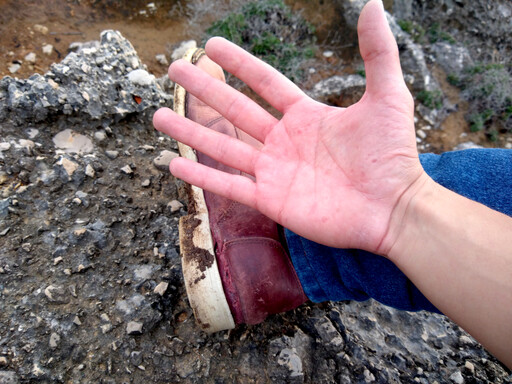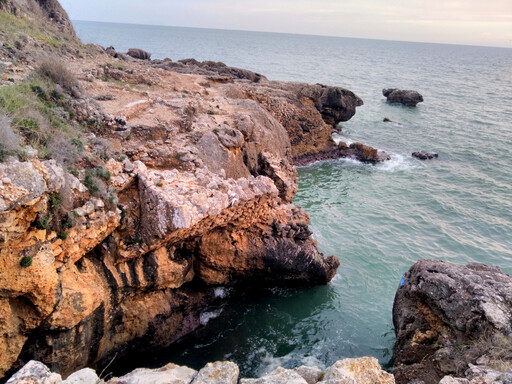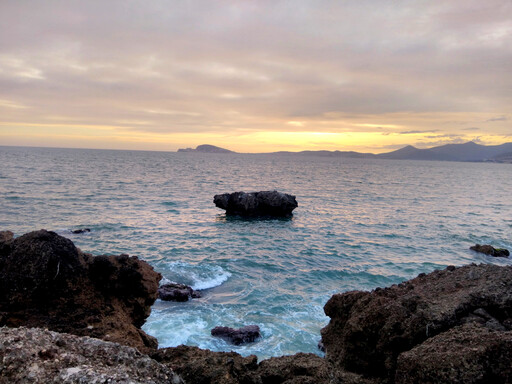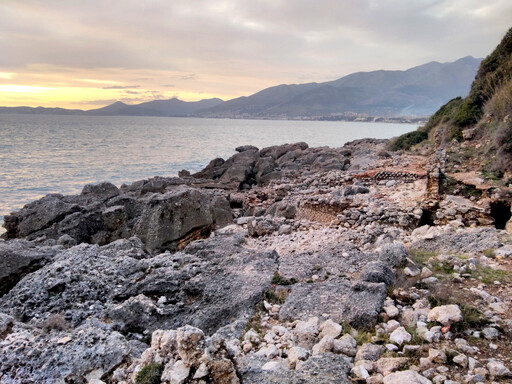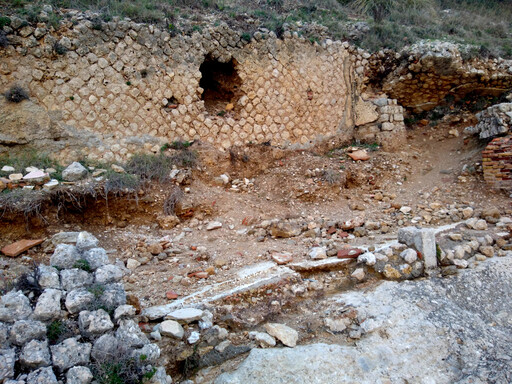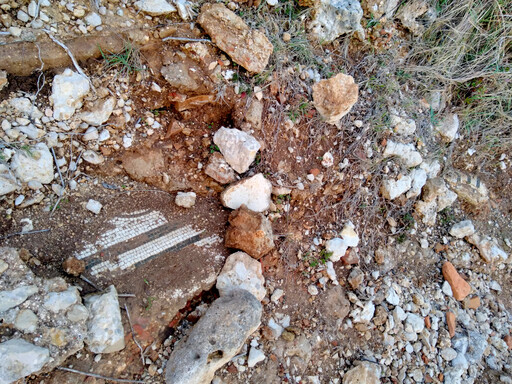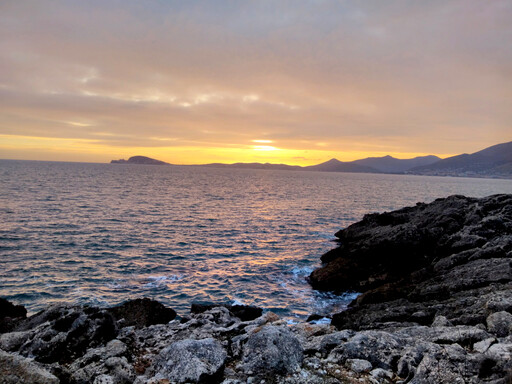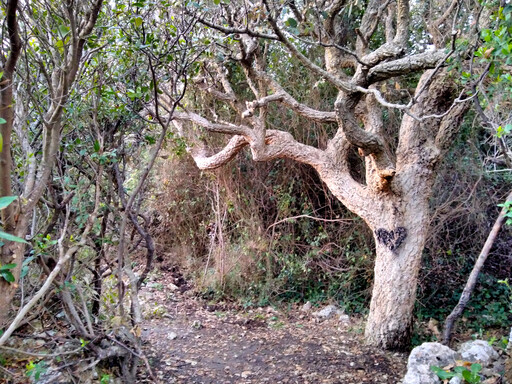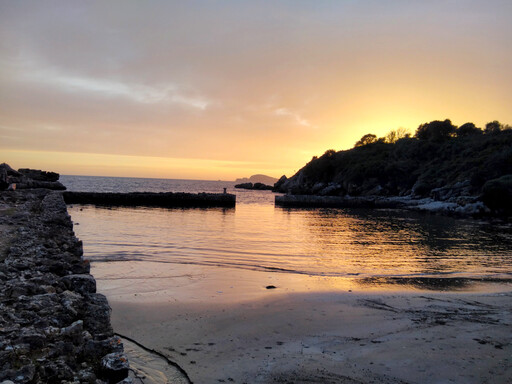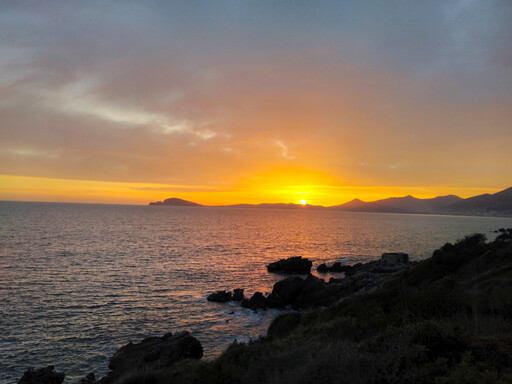Formia
As many of the cities along the Tyrrhenian coast on the ancient via Appia, Formia was a favored place for Roman seaside villae — including one belonging to the stepfather of the emperor Augustus. Its Greek name Όρμιαι (Hormiae in Latin, from a word for “harbor”) refers to its many ports and the mild maritime climate provided by its surroundings: the gulf of Gaeta and the monti Aurunci. The remains of many of these villae and ports can still be seen all they from the city center to the rocky shore on the way to monte Scauri, with salient pieces of two-thousand-year-old mosaics coming out of the rock every now and then.
One of the most famous residents of Formiae was the illustrious novus homo Marcus Tulius Cicero. It was there, on via Appia in 43 A.D., that he was assassinated by order of Marcus Antoninus, after criticizing both him and Julius Caesar throughout the decadent period which led to the Empire and admonishing Romans to return to the old Republican values — one of his most famous phrases, “O tempora, o mores”, “O times! O customs!”, comes from this period.
For both his implacable resistance and eminence as a public citizen, Cicero received the harshest punishment of all opponents of Antoninus: his severed head and his hands were displayed in the Roman Forum as strong discouragement of dissent. The monument housing his tomb lies on a stretch of the via Appia just outside of Formia now named after him: via Marco Tulio Cicerone.
Imitatus est homo Romanus et consularis veterem illum Socratem, qui, cum omnium sapientissimus esset sanctissimeque vixisset, ita in iudicio capitis pro se ipse dixit, ut non supplex aut reus, sed magister, aut dominus videretur esse iudicum.
The Roman consul imitated Socrates of old, who, being the wisest and having lived the most saintly life, spoke for himself while on trial for his life as to be seen not supplicant as a defendant, but great as a master of the judges.
